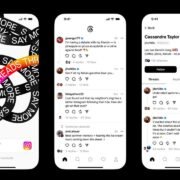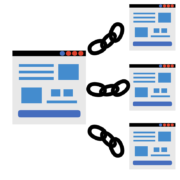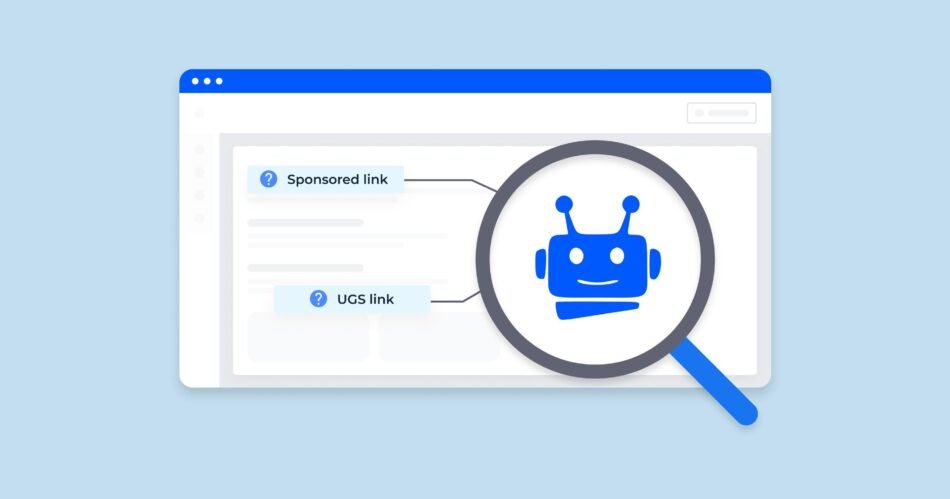In the vast world of search engine optimization (SEO), links play a crucial role in determining a website’s visibility and ranking on search engine result pages (SERPs). When it comes to link building, it’s essential to understand the different types of links, such as nofollow, sponsored, and user-generated content (UGC) links. This guide aims to provide you with a comprehensive understanding of these link types and how they impact your website’s SEO efforts.
Table of Contents
- Introduction
- Nofollow Links
- Sponsored Links
- UGC Links
- Best Practices for Using Nofollow, Sponsored, and UGC Links
- Impact on SEO
- Conclusion
- FAQs
Introduction
Links are the building blocks of the internet, connecting various websites and pages. Search engines analyze these links to determine the relevance, credibility, and authority of a website. While all links are essential, search engines introduced specific attributes to help webmasters signal the nature of the links to search engine crawlers. The three primary link attributes are nofollow, sponsored, and UGC.
Nofollow Links
Nofollow links are tags added to a hyperlink to indicate to search engines that they should not pass any authority or PageRank to the linked page. Introduced by Google in 2005, nofollow links were initially created to combat spam and prevent search engine manipulation. Nofollow links can be used when linking to untrusted websites, paid advertisements, or user-generated content that may not meet editorial standards.
Sponsored Links
Sponsored links, as the name suggests, are links that are paid for or sponsored by a business or advertiser. These links are typically used in online advertising campaigns, affiliate marketing, or sponsored content. To ensure transparency and compliance with advertising guidelines, search engines require websites to mark sponsored links appropriately. By using the sponsored attribute, you inform search engines that the link is a paid placement.
UGC Links
UGC links refer to links within user-generated content, such as comments, forum posts, or guest blog posts. As user-generated content can vary in quality and authenticity, search engines introduced the UGC attribute to distinguish these links. The UGC attribute helps search engines understand that the content and links within it are generated by users and may not have the same level of editorial control as the website’s primary content.
Submit your user-generated content today Absolutely FREE!
Best Practices for Using Nofollow, Sponsored, and UGC Links
When utilizing these link attributes, it’s important to follow best practices to ensure maximum impact on your website’s SEO efforts. Here are some recommendations:
- Strategic Use: Determine which links should be nofollow, sponsored, or UGC based on their purpose and relationship to your website.
- Relevance and Context: Ensure that the linked content is relevant to the page it’s linked from, providing value to the users.
- Transparency: Clearly label sponsored links to maintain transparency with users and search engines.
- User Experience: Prioritize user experience by avoiding excessive use of nofollow, sponsored, or UGC links that may hinder navigation or dilute the content.
- Monitoring and Maintenance: Regularly review and update link attributes to align with any changes in your website’s content or partnerships.
Also Read: An SEO Guide to Nofollow, UGC, and Sponsored Links
Impact on SEO
Understanding the impact of nofollow, sponsored, and UGC links on SEO is crucial for effective link building. While nofollow links do not pass authority, they can still contribute to website traffic and visibility. Sponsored links, when used appropriately, can enhance brand exposure and attract targeted traffic. UGC links can add credibility and engagement to your website, but it’s important to moderate and monitor user-generated content for quality and relevance.
In summary, incorporating a well-planned strategy for using nofollow, sponsored, and UGC links can help improve your website’s SEO performance, enhance user experience, and build strong relationships within your industry.
Conclusion
Links are an integral part of SEO, and understanding the different types of links is essential for effective link building. Nofollow, sponsored, and UGC links each serve specific purposes and play a role in enhancing website visibility, credibility, and user experience. By employing best practices and considering the impact of these link attributes, you can optimize your website’s SEO efforts and achieve better rankings on search engine result pages.
FAQs
Q1: How does a nofollow link impact my website’s SEO? A1: Nofollow links do not pass authority or PageRank to the linked page. However, they can still generate traffic and contribute to your website’s visibility.
Q2: Are sponsored links considered unethical by search engines? A2: No, search engines recognize the importance of sponsored links for advertising and marketing purposes. Just make sure to mark them as sponsored to maintain transparency.
Q3: Can UGC links harm my website’s SEO? A3: UGC links, when properly moderated and relevant, can add value to your website. However, it’s important to monitor user-generated content for quality and potential spam.
Q4: Should I use all three link attributes on my website? A4: The usage of these link attributes depends on the nature of your website, content, and partnerships. Strategically determine which attributes are appropriate for your specific needs.
Q5: How frequently should I review and update link attributes? A5: Regularly monitor and update link attributes based on any changes in your website’s content or partnerships to maintain accuracy and relevance.
In conclusion, understanding and utilizing nofollow, sponsored, and UGC links effectively can greatly impact your website’s SEO performance. By implementing these link attributes strategically and following best practices, you can enhance your website’s visibility, credibility, and user experience, ultimately driving organic traffic and achieving better search engine rankings.
-

1 Shift from SEO to UIO: Harnessing the Potential of User Intent Optimization
-

2 Is threads app safe?
-

3 Tips to Grow on the Threads App
-

4 Nofollow, Sponsored, and UGC Links: What You Need to Know
-

5 Maximizing SEO Impact: A Guide to Qualifying and Optimizing Outbound Links
-

6 An SEO Guide to Nofollow, UGC, and Sponsored Links
-

7 Dofollow Backlinks vs. Nofollow Backlinks: Understanding the Difference
-

8 From Zero to Hero: How Submitting a Guest Post Can Boost Your Online Presence


